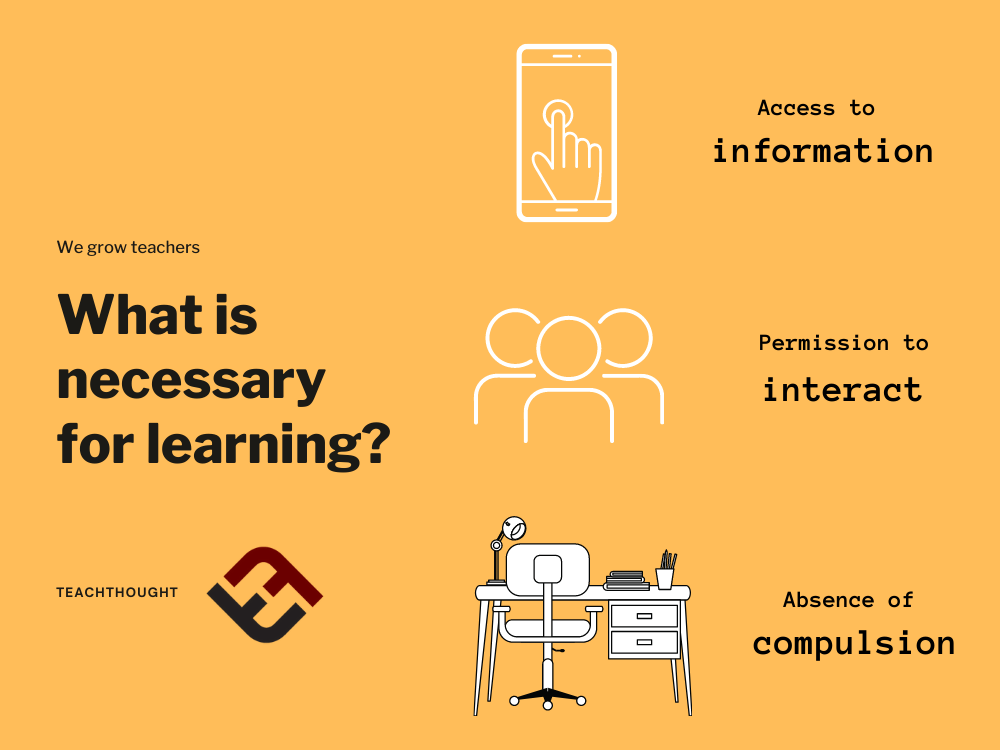What Things Are Necessary For Learning To Occur?
Not much, according to Sugata Mitra, Professor of Educational Technology at Newscastle University in England.
In fact, it can be reduced to three ingredients. Mitra has compelling credibility here, obviously. His hole-in-the-wall project in 2007 generated tremendous interest when he showed that children could indeed learn complex tasks in the absence of formal training, spurred on by curiosity and peer interest.
In Critical Thinking Strategies For Learning, I offered a variety of ‘ways’–cognitive actions, so to speak–students think critically about anything, explaining that “Critical thinking is the ongoing application of unbiased, accurate, and ‘good-faith’ analysis, interpretation, contextualizing, and synthesizing multiple data sources and cognitive perspectives in pursuit of understanding.”
So what are the three ingredients did Mitra identify (way back in 2011, and again in the 2018 video linked here)?
The video summary explains, “Almost twenty years of experiments with children’s education takes us through a series of startling results – children can self organise their own learning, they can achieve educational objectives on their own, can read by themselves. Finally, the most startling of them all: Groups of children with access to the Internet can learn anything by themselves. The mechanism of this kind of learning seems similar to the appearance of spontaneous order, or ‘emergent phenomena’ in chaotic systems.”
Three (Surprising) Ingredients Needed For Learning
1. The internet
2. Permission to interact
3. Absence of a teacher
Self-directed learning is not a new idea, but this pushes that concept much further. At the end, he also explains the three necessary skills a ‘future’ 21st-century learner will need: reading comprehension (not much different than critical thinking), information retrieval (and evaluation, I’d assume), and how to believe (to resist conditioning and indoctrination).
What Are The Key Ingredients for Learning?
Of course, cognitive psychology says that many factors influence how much and how well we learn, among them ‘ability,’ prior knowledge, and motivation.
Generally, our capacity to acquire new skills and knowledge varies among individuals; prior knowledge is often a deciding factor in how well we do something; and the amount of motivation you have for learning a particular topic can directly impact your performance.
Ultimately, what’s necessary for learning depends on who is learning what and why they’re learning it, but at the core of any analysis of these kinds of factors are access to knowledge and intrinsic motivation–which can result in ‘student engagement,’ curiosity, inquiry, informal learning, and more.

